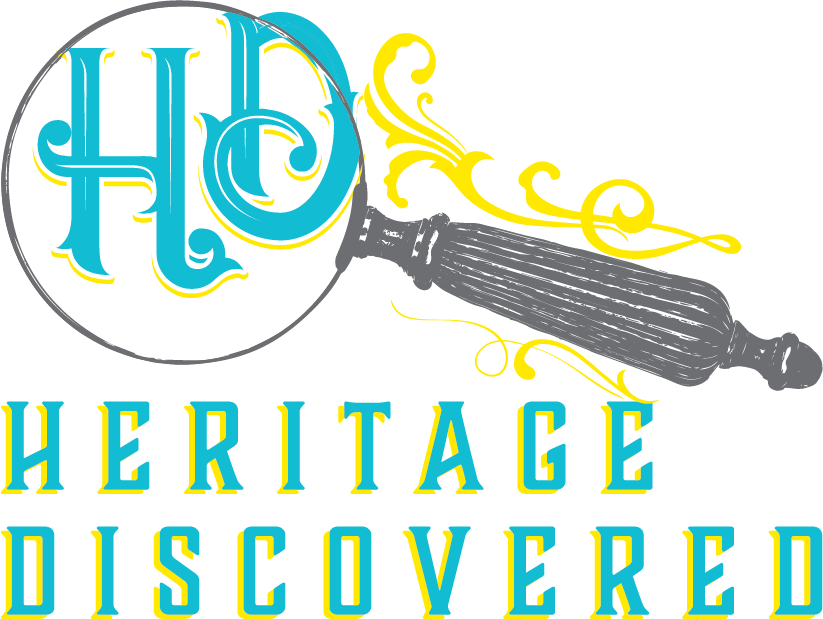How To Elevate Your Genealogy Research With Goal Setting
*This post may have affiliate links, which means I may receive commissions if you choose to purchase through links I provide (at no extra cost to you). All opinions remain my own.
We all know that genealogy research is a marathon, not a race. Your family tree is never truly done.
That’s part of the appeal of it, right? There’s always something more to look for.
So how do you tackle what can feel like both a world of possibilities and total overwhelm about what to do next?
You set genealogy research goals to take you step-by-step through building your family tree.
In this article, I discuss genealogy goal setting and how to plan achievable goals to help you succeed in your family history work.
Related posts:
Why You Need a Genealogy Research Log
7 Tips To Help You Create A Successful Genealogy Research Plan
12 Tips For Getting Back Focus And Motivation In Your Genealogy Research
Why it’s important to set genealogy research goals
Many family historians struggle with goal setting.
Planning genealogy goals can be harder than other personal or professional objectives. How can you pick one ancestor or one event to focus on when there are so many people in your family tree to learn more about?
How do you plan when you don’t know if you’re going to come across something that will lead you down a new path and change what you want to look for?
We’ve all been there. You’re researching and something catches your eye and sparks your curiosity.
You decide to take a “quick look” into this new thing. But hours later, you’re still looking at it (or even another shiny object or two) and you’re no closer to finding what you started out looking for.
That’s exactly why setting goals is essential.
Genealogy goal setting keeps you on track so you don’t go chasing bright shiny objects all over the internet. There are way too many of these possibilities and they can derail your research fast.
Setting specific tasks to work on doesn’t have to be limiting. It can get you more motivated because you know where to direct your energy.
What is an example of a genealogy research goal?
Research goals can be anything from very specific to broad or aspirational ones. It all depends on what projects are of interest to you and the unique aspects of your family history.
Some examples of genealogy research goals are:
Find an ancestor’s biological parents
Research a branch as far back as possible
Create source citations for records you’ve found
Apply to a lineage society
Update the locations in your genealogy software to be consistent
Plan a research trip
Attend a conference or institute
Watch 3 educational webinars a month
Assign groups to DNA matches
Visit the hometown of an immigrant ancestor
Creating a family history book
Research a specific # of hours a week
Discover when your family arrived in the US
Prove family lore
Apply for dual citizenship
Identify the original surname of an immigrant ancestor
Read the genealogy books you keep buying and leave on the shelf because you have no time (or is that just me?)
The possibilities are endless.
Related posts:
Solve Your Genealogy Brick Wall: Review and Analyze Your Research
Solve Your Genealogy Brick Wall: How To Evaluate Your Sources
Solve Your Genealogy Brick Wall: 10 Ways To Widen Your Research Net
Solve Your Genealogy Brick Wall: How To Research A Last Name In An Area
How to successfully set goals for your research
Before you plan each genealogy goal, reflect on your wins and celebrate them. Make a list of your successes from the year (or whatever time period you choose). It’s easy to get caught up in searching for something, uncovering it, and then moving on to looking for the next thing. We need to celebrate what we discover more often.
Then list what skills and resources that have helped you become a better researcher.
Pick 2-5 objectives that would be most impactful to your family history research.
Besides finding out specific things about an ancestor, I suggest also creating one for your education and/or one “behind the scenes” goal such as arranging all your papers into binders or getting organized with checklists.
Set SMART goals. You’ve probably heard the term SMART goal. You want them to be:
Specific. Be precise, like locating your 5x great-grandparents’ marriage.
Measurable. What steps can you take to make it? Will you research for 15 minutes a day? Will you attend a conference or institute to learn the skills you want to build?
Aligned (some say Achievable, but I like Aligned). What are your bigger picture family tree wishes?
Realistic. They can be stretch goals, like joining the Daughters of the American Revolution, but be careful not to get too ambitious in when it can be met. You want them to be achievable and to feel successful so you can keep up your momentum.
Time bound. When would you like to have accomplished this? Set a deadline for it. It could be ongoing, like to take genealogy webinars. How many will you watch and in what timeframe? Break down each goal into manageable, measurable, time bound steps.
Finally, think through what you need to meet your goals. What skills do you need, such as analyzing evidence or improving your Google searches.
What resources do you need, like libraries, archives, or a locality guide?
Review your goals often and adjust as needed. It’s okay to revise your plans based on something you find, your life circumstances, or if you just feel like it.
I like to keep track of my goals in Airtable, a free spreadsheet software that can do amazing things. I also keep them on the wall by my desk to remind me what my main priorities are when I sit down to do research.
Questions to help guide your goal setting
Some questions to help you in your genealogy goal setting are:
Who do you most want to learn about?
What record could you dig up that would make the most difference in your research?
What brick walls do you have?
What skills do you want to develop?
Examples of personal successes thanks to genealogy goal setting
Genealogy is the only hobby that gets harder the longer you do it, right?
I’m not above picking a name out of my family tree and doing a general search for them to see what comes up. Sometimes it can be fun, and you never know what you may find. Serendipity is part of the thrill of the chase.
But I’ve been doing this for a long time and I’m at the stage where almost all research is hard. No more plugging a name into a search box and going back four generations in an hour.
Because of this, I’ve had to get much better at setting priorities. This has helped me to achieve what feels like a lot, even though the research is trickier now.
Some of my recent successes thanks to goal setting are:
Identified the church parish and/or townland of my five Irish branches. I only knew the county for one of them when I started, and no parishes or townlands. Through a lot of collateral research, I found the where all of them were from and even found parish records in Ireland for them!
Tracked down information on my great-grandfather’s first wife. He was briefly married to a woman who left him. She was a picture bride and they had two kids together before she ran off with another man and had a bunch of kids with him. I knew her name, but nothing else. Once I focused on her, I found her marriage, information on all her kids, a court record, and her alien registration file. Now I know where she was from and her parents’ names.
Found the parents of my 4th great-grandmother, Sarah Merrill. Although I’m still gathering more evidence, I am confident I have the right parents and have started to work on who her grandparents were as well. A clue in a Civil War pension file for her son helped lead me to them.
Found the parents of my 3rd great-grandfather, Joseph Sylvester. All I knew is that he was from Quebec and he left very few records in the US before abandoning his family and disappearing. Through setting goals and some thoughtful searching, I found his parents. From there, I traced the line back to the original immigrants from France.
- Concentrated on my genealogy education and added a lot of new skills and ideas for resources to my research toolkit. Investing the time has paid off with tons of inspiration and knowledge that have helped me reach these goals. My favorite genealogy education resources are societies and Legacy Family Tree webinars. Legacy is always adding fresh webinar content and there is a wide variety of topics you can learn about.
Each genealogy goal I create encourages me to stay focused and motivates me despite any challenges I encounter. It also helps me to avoid making mistakes or chasing the wrong person because I know exactly who I’m looking for and when and where they lived.
Final thoughts
By intentionally setting each genealogy goal and thinking through what you need to achieve it, you’ll make big strides in your genealogy journey.
Being exact about what you want to find doesn’t mean you can’t research other things when you feel like it. It simply keeps you focused so you don’t go off on too many tangents, which is very easy to do in family history research.
What research goals do you have right now?





